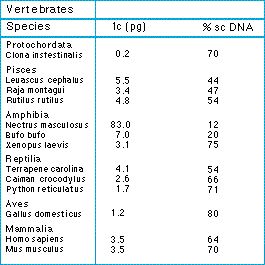Rates of evolution - Why do evolutionary rates vary?

Which evolves faster - mammals or molluscs?
It was a well known generalization that mammals evolve faster than molluscs and this is reflected in Gingerich's data: he found that vertebrates as a whole tended to evolve faster than invertebrates. This is shown in the table opposite.
Now, it remains true that in the samples measured vertebrates did evolve 1.14 times as fast as invertebrates; but this might be due to the shorter time intervals for the vertebrate than the invertebrate measurements: in fact, when Gingerich corrected for the difference in intervals he deduced that invertebrates actually evolve faster than vertebrates.
While it is not impossible to compare rates of evolution between different kinds of taxa, it is advisable to look at the time intervals when comparing the evolutionary rates of different lineages.
Table: Gingerich's summary of evolutionary rates. The summary is large but not complete; it is based on 521 different measurements. Gingerich divided the measurements into four classes. From Gingerich (1983).
| Next |



